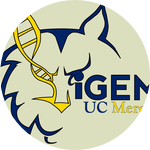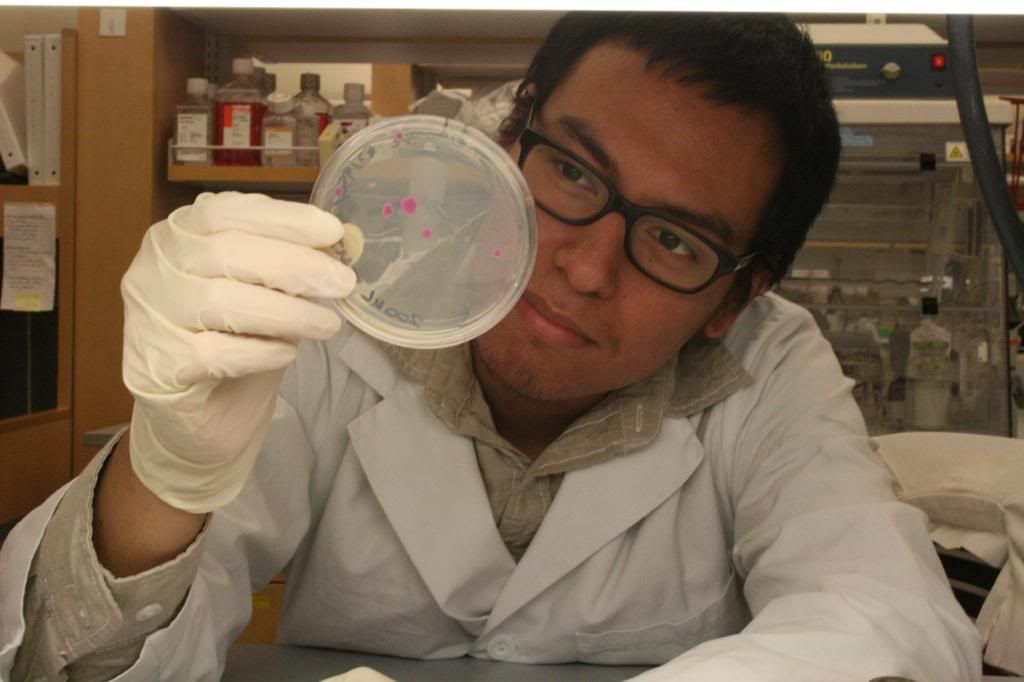About This Project
Currently there is no process both green and efficient to create hydrogen fuel for the future. There is much untapped potential in microorganisms such as yeast and bacteria. Students at the University of California Merced are currently engineering bacteria to ferment fuel instead of beer. The entire process along with the bacteria is not only cheap, but easily maintained too. When completed this will provide a competitive alternative fuel for the future that will make traditional gasoline outdated.Ask the Scientists
Join The DiscussionWhat is the context of this research?
Our project involves engineering a common bacteria, E. coli, to produce hydrogen gas as an alternative energy source. The specific aim of this project aims to modify E. coli's metabolic pathway by removing current proteins involved in its metabolism and adding new proteins which will redirect its metabolism to create hydrogen gas.
What is the significance of this project?
Energy production in modern society relies primarily on fossil fuels, like gasoline and diesel fuel. However, fossil fuels are a limited resource and their use generates pollution. Our goal is to create a sustainable and clean energy source to fossil fuels. Hydrogen gas is considered a clean alternative energy source and bacteria are hardy organisms cheap to maintain. Producing such an alternative fuel will address the rising issues of a dwindling fossil fuel supply, and mitigate its demand as a future primary fuel source.
What are the goals of the project?
We have finished planning and the initial data from preliminary proof-in-concept experiments revealed promising results. Our project aims to alter E. coli's metabolic pathway to produce hydrogen gas from glucose. Since the process involves inserting new genes into bacteria, it is a rigorous process where most cells do not survive and many more do not successfully obtain the correct genes. In order to do so, we'll need to plate and test many samples of bacteria to obtain the right strain, requiring specific laboratory equipment. Our team will also need funding to participate in this year's iGEM conference to present our findings.
Budget
Laboratory equipment to culture and maintain bacteria: $2,250
Registration to iGEM (with continued access to its DNA repository): $2,750
View our detailed budget in our lab notes.
Meet the Team
Team Bio
UC Merced iGEM's team was founded last year in the summer of 2012 between what was, initially, a small group of natural sciences and engineering students. Usually, the majority of iGEM's teams are supervised and directed by faculty members. However, at UC Merced the students conduct both supervision and oversee the direction of the project with faculty members playing only an advisory role. Everything you've read about so far: the plan, the project, and the experiments conducted was carried out entirely by undergraduate students.This style of organization in our team provides an amazing opportunity to university students to encounter, first-hand, the intricate details of what exactly goes on in university-level research before, during, and after by engaging students in every area of research. This new approach fosters the next generation of scientists to a higher caliber and standard.
UC Merced iGEM
UC Merced iGEM's team was founded last year in the summer of 2012 between what was, initially, a small group of natural sciences and engineering students. Usually, the majority of iGEM's teams are supervised and directed by faculty members. However, at UC Merced the students conduct both supervision and oversee the direction of the project with faculty members playing only an advisory role. Everything you've read about so far: the plan, the project, and the experiments conducted was carried out entirely by undergraduate students.
This style of organization in our team provides an amazing opportunity to university students to encounter, first-hand, the intricate details of what exactly goes on in university-level research before, during, and after by engaging students in every area of research. This new approach fosters the next generation of scientists to a higher caliber and standard.
Project Backers
- 26Backers
- 44%Funded
- $2,153Total Donations
- $82.81Average Donation

